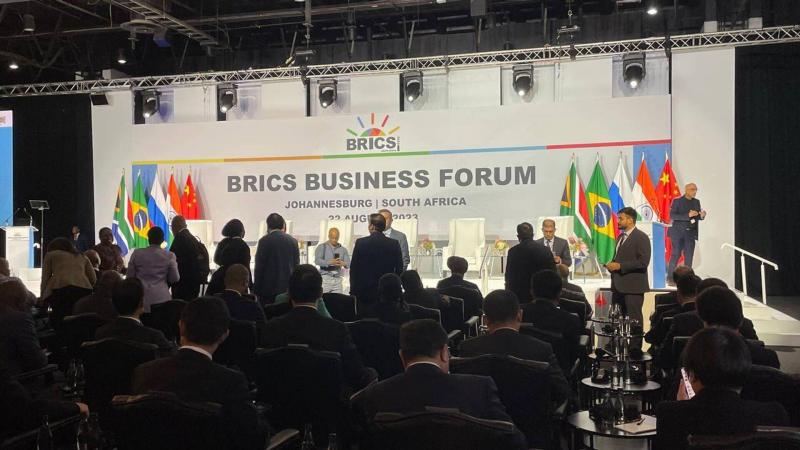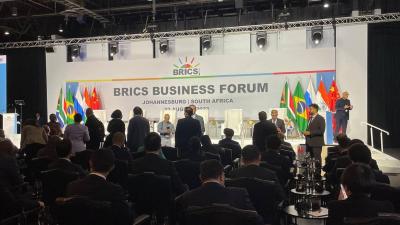South African Foreign Minister Naledi Pandor announced that the BRICS group, which includes Brazil, Russia, India, China, and South Africa, has adopted a document outlining the guidelines and principles for the group's expansion. Naledi stated to a radio station run by her ministry, "We agreed on the issue of expansion." She added, "We have a document that we have approved, which defines the guidelines, principles, and procedures for examining the applications of countries wishing to join BRICS... This is very positive." She indicated that the leaders of the group would make a more detailed announcement regarding the expansion before the summit concludes tomorrow, Thursday.
The agreement on expansion mechanisms paves the way for dozens of interested countries to submit justifications for membership in BRICS, which is committed to leading the development of the "Global South."
On the second day of the summit, which is being held in Johannesburg for three days, BRICS leaders discussed the expansion of the group, composed of major developing economies, seeking to enhance its role on the international stage and reduce Western dominance. China has previously vigorously sought to expand BRICS amid fierce competition with the United States. In contrast, India has been cautious about agreeing to this step.
Agreements were signed between South Africa and China on the sidelines of the BRICS summit on Wednesday, encompassing areas such as emission reduction technology, electricity transfer and distribution, and nuclear energy. These agreements emerge as part of the South African government's efforts to end record electricity outages that represent a major barrier to economic growth.
Electricity Minister Kgosientsho Ramokgopa stated that one agreement stipulates that Chinese companies will transfer technology to the South African state utility Eskom to assist in reducing emissions from coal-fired power stations. Other agreements aim for Chinese companies to aid Eskom in modernizing its electricity transmission and distribution infrastructure and to transfer expertise in nuclear energy.
Earlier, Chinese President Xi Jinping urged BRICS leaders to unite and called for the expansion of the group to confront what he described as a "period of turmoil and transformation" in the world. China, with its significant influence in the group, has long sought expansion, seeing the deterioration of its relations with Washington and growing global tensions arising from the Ukraine war as increasing the urgency of the expansion project. Xi stated, "The world is undergoing significant transformations, division, and reorganization... and has entered a new phase of turmoil and transition." He added, "We, the BRICS countries, must always keep in mind our founding goal of strengthening ourselves through unity."
Russian President Vladimir Putin, who faces an international arrest warrant on war crime charges, views BRICS membership as a way to show the West that he still has friends. He did not travel to South Africa but used a video link to criticize Western powers. He said, "I want to point out that the desire to maintain their dominance in the world, and the desire of some countries to maintain this dominance, is what has led to the severe crisis in Ukraine."
In addition to the issue of expansion, the agenda of the summit also discusses enhancing the use of local currencies by member countries in trade and financial transactions to reduce dependence on the dollar.
The BRICS summit for emerging economies, including Brazil, Russia, India, China, and South Africa, kicked off yesterday, Tuesday, and will continue until Thursday in Johannesburg, the largest city and economic capital of South Africa. BRICS members aim to leverage the summit to create a counterweight to Western dominance over global institutions.
Currently, BRICS represents 40% of the world's population and a quarter of the global economy. The group, which consists of economies of varying sizes and political systems, shares a direction towards providing an alternative to a global system dominated by Western powers that better serves the interests of developing countries. BRICS was established in 2009, with South Africa joining the following year.




